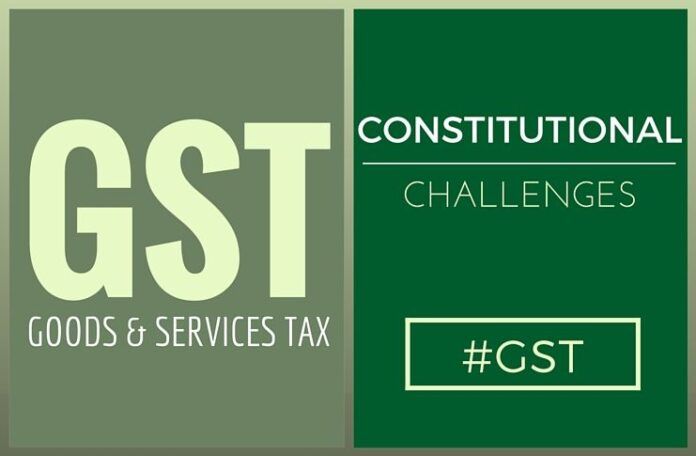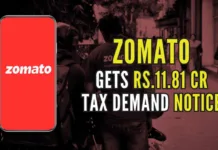
[dropcap color=”#008040″ boxed=”yes” boxed_radius=”8px” class=”” id=””]T[/dropcap]he Smt. Sonia Gandhi – Dr. Manmohan Singh led United Progressive Alliance (UPA) government had proposed two ambitious tax reforms – ‘Direct Tax Code‘ for the Central Direct Taxes and a national Goods and Services Tax integrating various Central and State Indirect taxes with a view to harmonize the tax structure, reduce litigation and achieve a common national market of goods and services.
Come year 2014 and the Narendra Modi wave swept the nation leading to change in government. Sh. Arun Jaitley, the present Finance Minister, in his very first union budget, shelved, and very rightly so, the proposed Direct Taxes Code citing the development of wide body of jurisprudence under the existing Direct Tax statutes. However, the proposed Goods and Services Tax (GST) did not meet the same fate and was rather appropriated by the present NDA government as one of their own major tax reforms. Ironically, the Congress led UPA government which had proposed the GST legislation stood in opposition, principally in the Rajya Sabha where unlike the Lok Sabha the BJP led NDA does not have a working majority.
The Constitution (122nd Amendment) Bll, 2014 amends the Constitution of India to create an enabling framework for the introduction of Goods and Services Tax in India and also includes the formation of a body to be called the “GST Council”.
-
The GST Council will consist of (a) the Union Finance Minister (as Chairman), (b) the Union Minister of State in charge of Revenue or Finance, and (c) the Minister in charge of Finance or Taxation or any other Minister, nominated by each state government. All decisions of the GST Council will be made by three-fourth majority of the votes cast; the centre shall have one-third of the votes cast, and the states together shall have two-third of the votes cast.
-
The GST Council will make recommendations on: (a) taxes, cesses, and surcharges to be subsumed under the GST; (b) goods and services which may be subject to or exempt from GST; (c) the threshold limit of turnover for application of GST; (d) rates of GST; (e) model GST laws, principles of levy, apportionment of IGST and principles related to place of supply; (f) special provisions with respect to the eight north eastern states, Himachal Pradesh, Jammu and Kashmir, and Uttarakhand; and (g) related matters.
-
The GST Council may decide the mechanism for resolving disputes arising out of its recommendations.
[dropcap color=”#008040″ boxed=”yes” boxed_radius=”8px” class=”” id=””]I[/dropcap]t may be clearly noted that the functions of GST Council are both advisory to the executive and quasi-judicial. Whilst the GST Council deciding the mechanism for resolving disputes arising out of its recommendations is at present a key point of disagreement between the BJP and INC, this is very likely to balloon as a major point of unconstitutionality, if and when, the GST legislation in its present form is passed by the Parliament, is challenged before the Supreme Court.
Here is why:
Article 131 of the Constitution of India, vests the Original Jurisdiction to the Supreme Court of India in any dispute-
-
between the Government of India and one or more States; or
-
between the Government of India and any State or States on one side and one or more other States on the other; or
-
between two or more States, if and in so far as the dispute involves any question (whether of law or fact) on which the existence or extent of a legal right depends:
[dropcap color=”#008040″ boxed=”yes” boxed_radius=”8px” class=”” id=””]T[/dropcap]he proposed GST Council adjudicating on Taxation / Revenue disputes between Centre and States or between two or more States is very likely to be seen by the Supreme Court of India as an encroachment in its Original Jurisdiction as vested upon it by the Constitution of India.
If and so is it considered by the Supreme Court as a part and parcel of the basic structure of the Constitution of India and which cannot be amended under Article 366 of the said Constitution, it poses a threat to throw the entire framework and scheme of GST Council in disarray.
- Social Security Payments : Tax or Savings - September 28, 2017
- India Uninc set for a giant leap post Demonetization & GST : A Contrarian opinion - September 3, 2017
- India Myanmar Strategic Economic Cooperation - September 1, 2017











Article 262 of the Constitution of India specifically provides for adjudication of disputes relating to waters of inter-state Rivers by a Tribunal established by Parliament by law. No such exception to GST Council is at present available in the Constitution (To be amended by the Constitution 122nd Amendment Bill passed by both houses of Parliament and pending ratification by a majority of States and assent of the President of India ).
Modelling GST Council on the lines of Inter-State Water Tribunal will require a further amendment to be passed by both houses of parliament, ratification by majority of state legislatures and assent of the President.
Further, the present structure of GST Council having both Executive, Delegated Legislation (Rule / Regulation making under GST Acts) and Judicial powers will be in direct conflict with Article 50 Directive Principles of State Policy which mandates the State to take steps to separate the judiciary from the executive. In this case, the GST Council will be super authority having Executive, Delegated Legislative and Judicial powers hitherto enjoyed by no other organ in the Constitution. The real question is the effect of vesting such powers in the same authority is necessary, expedient anyone?
we already have precedents in this matter… various tribunals adjudicating river water disputes between States have pretty much independent & absolute authority in the concerned matter, in which not even the Supreme Court intervenes. GST Council can be modeled on these lines, if required, through an amendment.